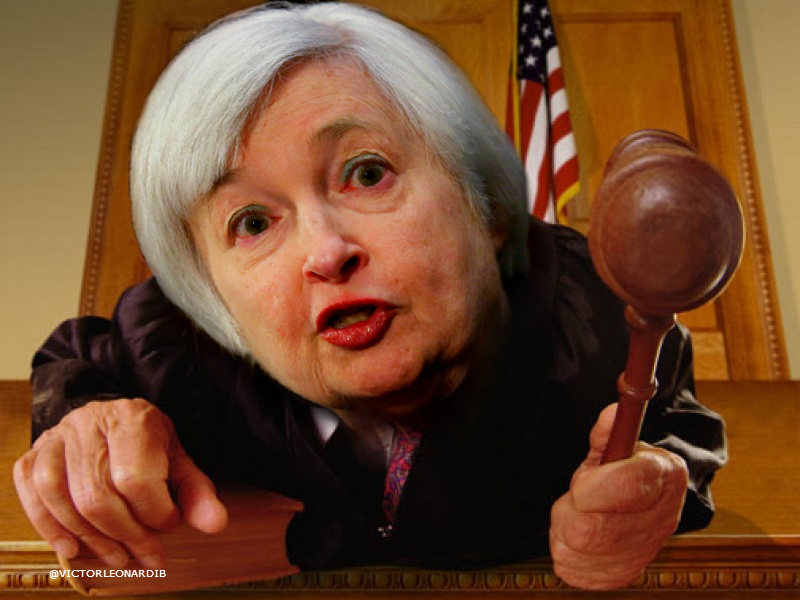Inflation is the big question facing the Fed
We already knew that the Fed was feeling good about growth and employment. The picture from inflation, however, is murky. The latest FOMC statement said they would raise rates when they were 'reasonably' confident of a move back to 2% inflation in the medium term.

Here is what Yellen had to say on inflation today:
Some worries about inflation expectations:
Regarding U.S. inflation, I anticipate that the drag from the large declines in prices for crude oil and imports over the past year and a half will diminish next year. With less downward pressure on inflation from these factors and some upward pressure from a further tightening in U.S. labor and product markets, I expect inflation to move up to the FOMC's 2 percent objective over the next few years. Of course, inflation expectations play an important role in the inflation process, and my forecast of a return to our 2 percent objective over the medium term relies on a judgment that longer-term inflation expectations remain reasonably well anchored. In this regard, recent measures from the Survey of Professional Forecasters, the Blue Chip Economic Indicators, and the Survey of Primary Dealers have continued to be generally stable. The measure of longer-term inflation expectations from the University of Michigan Surveys of Consumers, in contrast, has lately edged below its typical range in recent years. However, this measure often seems to respond modestly, though temporarily, to large changes in actual inflation, and the very low readings on headline inflation over the past year may help explain some of the recent decline in the Michigan measure.6Market-based measures of inflation compensation have moved up some in recent weeks after declining to historically low levels earlier in the fall. While the low level of these measures appears to reflect, at least in part, changes in risk and liquidity premiums, we will continue to monitor this development closely. Convincing evidence that longer-term inflation expectations have moved lower would be a concern because declines in consumer and business expectations about inflation could put downward pressure on actual inflation, making the attainment of our 2 percent inflation goal more difficult.
Growth and employment has bolstered her confidence:
As I have already noted, I currently judge that U.S. economic growth is likely to be sufficient over the next year or two to result in further improvement in the labor market. Ongoing gains in the labor market, coupled with my judgment that longer-term inflation expectations remain reasonably well anchored, serve to bolster my confidence in a return of inflation to 2 percent as the disinflationary effects of declines in energy and import prices wane.
Again expresses confidence but says that could change with new data:
On balance, economic and financial information received since our October meeting has been consistent with our expectations of continued improvement in the labor market. And, as I have noted, continuing improvement in the labor market helps strengthen confidence that inflation will move back to our 2 percent objective over the medium term. That said, between today and the next FOMC meeting, we will receive additional data that bear on the economic outlook. These data include a range of indicators regarding the labor market, inflation, and economic activity.



